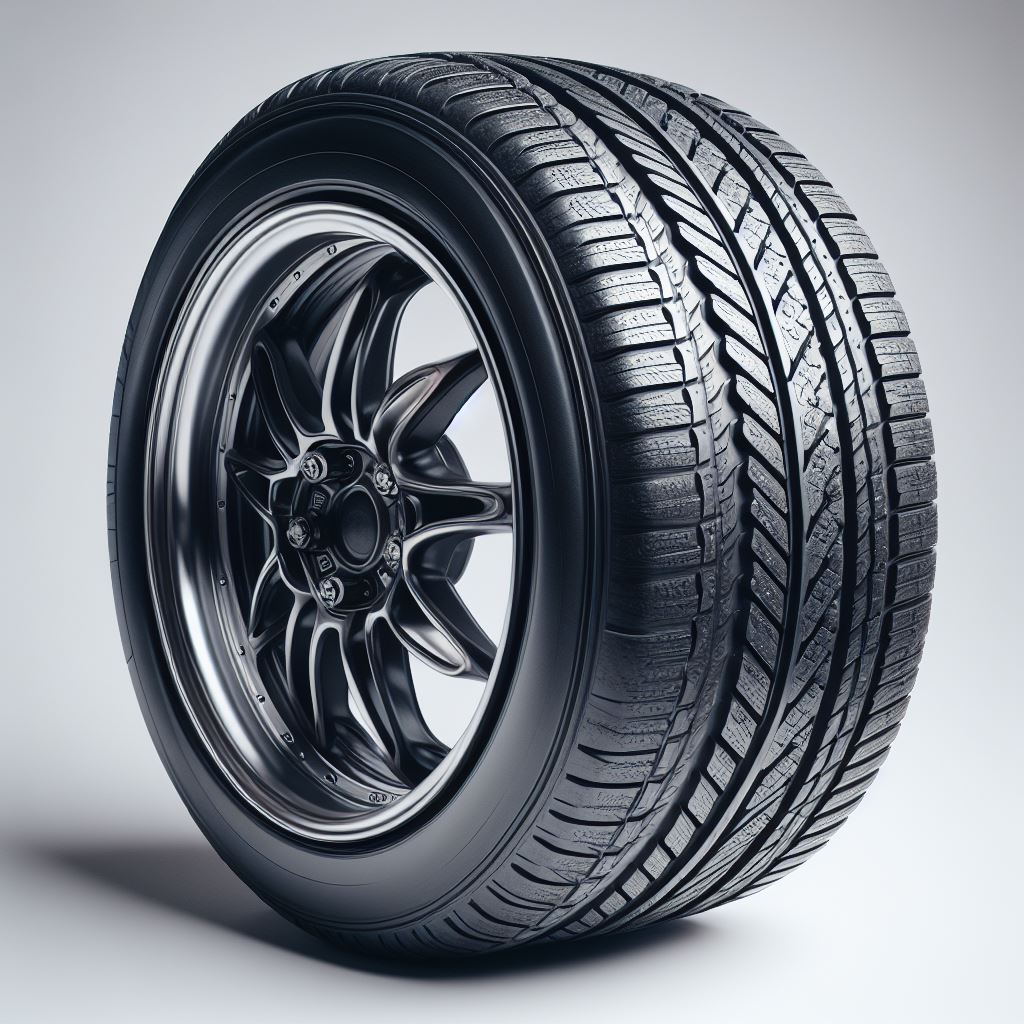How To Choose Hankook Dynapro AT-M
- How To Choose Arctic Claw WXI - January 20, 2024
- How To Choose BFGoodrich Advantage Control All Season - January 20, 2024
- How To Choose BFGoodrich Winter T/A KSI - January 20, 2024

Tire Size and Fitment
Choosing the correct tire size and fitment for your vehicle is crucial for optimal performance and safety. The tire size refers to the width, aspect ratio, and rim diameter, which are usually indicated on the sidewall of the tire. It is essential to follow the manufacturer’s recommendations for tire size and fitment to ensure proper clearance, load capacity, and compatibility with your vehicle’s suspension and braking systems.
When selecting tires, it is important to consider factors such as vehicle type, driving conditions, and personal preferences. The tire size and fitment should be chosen based on the specifications outlined in your vehicle’s owner’s manual or by consulting a tire professional. A properly fitted tire not only improves handling, stability, and fuel efficiency but also enhances overall driving experience.
Tread Pattern and Design
Tread pattern and design play a crucial role in the overall performance and handling of a tire. The tread pattern, which consists of the different patterns of grooves and blocks on the surface of the tire, determines how the tire interacts with the road. The design of these patterns is carefully engineered to provide optimal traction and grip on various surfaces, including wet, dry, and snowy conditions.
The depth and spacing of the grooves in the tread pattern are designed to channel water away from the tire’s contact patch, reducing the risk of hydroplaning and maintaining good traction on wet roads. Additionally, the design of the tread blocks affects the tire’s grip and stability during cornering and braking. A well-designed tread pattern can enhance the tire’s performance, providing better handling, improved stability, and shorter braking distances. It is important to consider the tread pattern and design when choosing tires, especially if you frequently drive in different weather conditions or require specific performance characteristics.
Tire Performance and Durability
When it comes to tire performance, there are a few key factors to consider. First and foremost is the tread life of the tire. A tire with good durability will be able to withstand regular wear and tear over an extended period of time, ensuring that you get the most out of your investment. Additionally, a high-performing tire should be able to provide excellent traction, particularly in wet or slippery conditions. This is crucial for maintaining control and safety while on the road.
Another important aspect of tire performance is its ability to handle various road conditions. A good tire should be able to provide reliable grip on both dry and wet surfaces, as well as have decent performance on snow or ice. Additionally, it should be able to handle corners and turns smoothly, without compromising stability or control. These performance factors are crucial for ensuring a safe and enjoyable driving experience.
Durability is also a key consideration when it comes to tire performance. A tire that is made of high-quality materials and is built to last will be able to withstand frequent use and maintain its performance over time. It should be resistant to punctures and have a strong sidewall construction to prevent damage from curbs or other obstacles. By choosing a tire with good durability, you can ensure that you won’t have to replace it prematurely, saving you time and money in the long run.
Load Capacity and Weight Rating
When selecting tires for your vehicle, it’s crucial to consider the load capacity and weight rating of the tires. The load capacity refers to the maximum weight that a tire can safely support, while the weight rating indicates the maximum load that the tire can handle under specific conditions.
Choosing tires with a sufficient load capacity is essential to ensure the safety and performance of your vehicle. Overloading tires can lead to excessive heat buildup, increased wear and tear, and a higher risk of tire failure. Consequently, it is vital to select tires that can handle the weight of your vehicle, passengers, and cargo without exceeding their load capacity.
It is also important to note that the load capacity and weight rating of tires can vary depending on the tire size and type. Before making a purchase, always refer to the manufacturer’s guidelines or consult with a tire professional to determine the appropriate load capacity and weight rating for your specific vehicle. By ensuring that your tires can safely accommodate the weight you intend to carry, you can maintain optimal performance and safety on the road.
Tire Noise and Comfort
Tire noise and comfort are important factors to consider when choosing the right set of tires for your vehicle. No one wants to endure a noisy ride, especially on long drives or during daily commutes. Tires that produce excessive noise can be distracting and create a less enjoyable driving experience. On the other hand, tires that provide a quiet and comfortable ride contribute to a more pleasant journey, allowing you to better enjoy the road ahead.
In addition to noise, the comfort level of your tires plays a crucial role in your overall driving experience. Smooth and comfortable tires can minimize vibrations and provide a more stable ride, enhancing both the driver and passenger’s comfort. Whether you’re navigating through city streets or taking long trips on the highway, investing in tires that prioritize noise reduction and comfort will undoubtedly enhance your driving pleasure.
Traction and Grip on Various Surfaces
The traction and grip provided by a tire are crucial factors to consider when it comes to overall performance and safety on various surfaces. The tire’s ability to maintain a firm hold on the road or any other type of terrain is directly related to its design and technology.
When it comes to dry surfaces, a tire with a wider contact patch and a tread pattern designed to provide maximum grip is ideal. These tires ensure better traction, enabling the vehicle to handle corners and straights with confidence. On wet surfaces, the tire’s ability to disperse water effectively becomes a priority. Tires with grooves and sipes designed to channel water away from the contact patch provide better grip and reduce the risk of hydroplaning.
Off-road enthusiasts require tires that offer exceptional traction on uneven and unpaved surfaces. Tires with aggressive tread patterns and sturdy sidewalls are designed to tackle off-road challenges while maintaining a firm grip on the terrain. These tires are engineered to provide enhanced traction on mud, rocks, and other challenging terrains, ensuring a steady and controlled drive.
In conclusion, the traction and grip of a tire play a crucial role in overall driving performance and safety. With various tire options available, it is important to choose a tire that meets the specific traction requirements of the desired surface, ensuring a reliable and confident driving experience.
Weather and Seasonal Suitability
Rain, snow, and icy conditions can greatly affect the performance of your tires. It is important to consider the weather and seasonal suitability of the tires you choose. Rainy conditions require tires with good wet traction and effective water channeling capabilities. Look for tires that have grooves and sipes designed to evacuate water quickly and prevent hydroplaning. In snowy and icy conditions, a tire with a high level of grip is crucial. Look for tires that are labeled as “winter” or “snow” tires, as they are designed to provide enhanced traction on slippery surfaces. It is also important to note that tires specifically designed for winter conditions may not perform as well in warmer weather, so be sure to switch to summer tires when the temperatures rise.
Seasonal changes can greatly impact the performance and durability of tires. In hot summer months, the heat can cause the rubber to wear out more quickly, leading to reduced tread life. On the other hand, during cold winter months, the rubber tends to harden, which can decrease traction. Therefore, it is important to choose tires that are suitable for the specific seasons you will be driving in. Opting for all-season tires can be a good compromise, as they offer decent performance in various weather conditions. However, if you live in an area with extreme weather conditions, it may be worth investing in specialized tires to ensure optimal performance and safety.
Warranty and Customer Support
Warranties and customer support are essential considerations when purchasing tires. A reliable warranty ensures peace of mind, protecting consumers against manufacturing defects or premature wear. It is crucial to carefully examine the warranty terms and conditions, including coverage duration and any limitations. Reputable tire manufacturers often offer extended warranties that provide additional coverage beyond the standard terms. Moreover, responsive customer support is essential, as it ensures prompt assistance in case of any issues or inquiries. Having a dedicated support team that can address concerns effectively can significantly enhance the overall tire ownership experience.
When assessing warranty and customer support, it is beneficial to consider the manufacturer’s reputation and track record in standing behind their products. Prioritize brands known for delivering exceptional customer service and timely support. Companies that prioritize customer satisfaction and go above and beyond to address concerns should be favored. It is also prudent to review feedback and experiences shared by other customers. Online platforms often provide valuable insights into the level of customer support offered by various tire manufacturers. By carefully considering warranty terms and customer support, consumers can make informed decisions and ensure their tire purchase is protected and backed by excellent service.
Price and Value for Money
When considering the price of tires, it’s important to remember that cheaper doesn’t always mean better value for money. While budget-friendly options may save you money upfront, they may not offer the same level of performance, durability, or safety as higher-priced alternatives. It’s essential to strike a balance between cost and quality, taking into account factors such as tread life, traction, and overall performance. Investing in a reputable brand with a proven track record and positive customer reviews can often yield greater value in the long run, preventing the need for premature replacements and ensuring a safer driving experience.
Additionally, it’s worth noting that value for money extends beyond the initial purchase price. Consider the longevity of the tires and their ability to withstand different weather conditions and road surfaces. High-quality tires that offer excellent performance and durability may require a bigger upfront investment but can save you money over time by lasting longer and requiring fewer replacements. It’s important to assess the overall cost-effectiveness of a tire, factoring in not only the initial price but also its expected lifespan and ability to meet your specific driving needs. Ultimately, finding the right balance between price and value for money is crucial to make an informed decision when purchasing tires.
User Reviews and Recommendations
User Reviews and Recommendations can play a significant role when it comes to making a decision about which tire to choose. Getting insights from other users who have already experienced certain tire brands or models can provide valuable information. For instance, many users highly recommend Brand X for their superior grip and traction on wet surfaces. They praised the tire’s excellent handling and responsiveness, which made them feel confident and safe while driving in rainy conditions. On the other hand, some users advise avoiding Brand Y due to its quick wear and reduced tread life. They expressed their disappointment with the tire’s durability and mentioned that it needed frequent replacements, leading to higher costs in the long run.
While user reviews should be taken into consideration, it is important to keep in mind that individual experiences may vary. Factors like driving style, road conditions, and vehicle type can greatly influence the perception of a particular tire. Therefore, it is recommended to read multiple reviews and take into account the overall consensus to make a well-informed decision. Additionally, it can be helpful to consult with a professional tire specialist or seek advice from trusted friends or family members who have similar driving needs. By gathering a range of opinions, users can better evaluate the strengths and weaknesses of different tire options, ultimately selecting the one that suits their requirements best.
What should I consider when it comes to tire size and fitment?
When choosing tires, it is important to ensure that they are the correct size and fitment for your vehicle. Refer to your vehicle’s manual or consult a professional to determine the appropriate tire size and fitment for optimal performance and safety.
How does tread pattern and design affect tire performance?
The tread pattern and design of a tire greatly impact its performance. Tires with different tread patterns are designed to excel in specific conditions such as wet roads, snow, or off-road terrains. Consider the type of driving you will be doing and choose a tire with a tread pattern that suits your needs.
What factors contribute to tire performance and durability?
Tire performance and durability depend on various factors such as the quality of materials used, the construction of the tire, and the driving conditions it is exposed to. Look for tires that are known for their longevity, grip, and resistance to wear and tear.
How important is load capacity and weight rating when choosing tires?
Load capacity and weight rating are crucial considerations when selecting tires. It is essential to choose tires that can handle the weight of your vehicle and any additional load, ensuring safe and efficient operation.
What role does tire noise and comfort play in the overall driving experience?
Tire noise and comfort greatly impact the driving experience. Some tires are designed to provide a quieter and more comfortable ride, while others may prioritize performance. Consider your preferences and choose tires that balance noise reduction and comfort with the desired level of performance.
How does traction and grip on various surfaces affect tire performance?
Traction and grip on different surfaces, such as dry, wet, or snowy roads, significantly affect tire performance. Tires with excellent traction and grip will provide better control, braking, and stability, enhancing overall safety and performance.
What should I consider regarding weather and seasonal suitability of tires?
It is important to choose tires that are suitable for the prevailing weather conditions in your area. Some tires are specifically designed for specific seasons or weather conditions, such as winter tires for snowy or icy conditions. Select tires that offer optimal performance and safety based on the weather you will encounter.
What should I know about tire warranty and customer support?
Tire warranties and customer support can vary among manufacturers. It is advisable to research and choose tires from reputable brands that offer comprehensive warranties and reliable customer support. This ensures peace of mind and assistance in case of any tire-related issues.
How do price and value for money factor into tire selection?
Price and value for money are important considerations when choosing tires. While it is tempting to opt for the cheapest option, it is essential to balance cost with quality and performance. Consider the overall value offered by the tires, including their durability, performance, and any additional features.
How can user reviews and recommendations help in the tire selection process?
User reviews and recommendations provide valuable insights from individuals who have firsthand experience with specific tires. They can offer real-world feedback on various aspects such as performance, durability, and customer satisfaction. Considering user reviews and recommendations can be helpful in making an informed decision.





